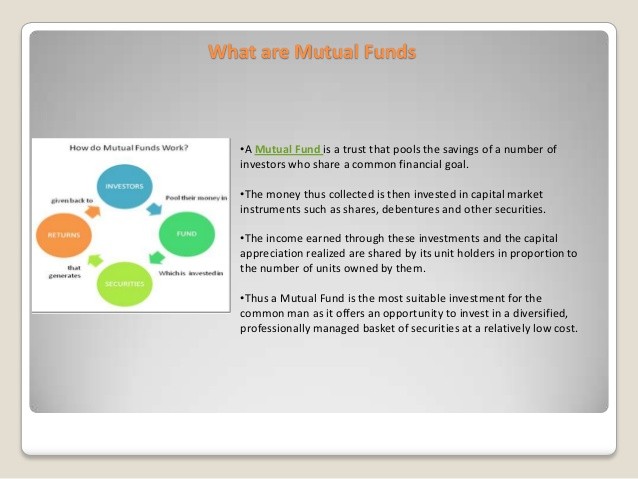Mutual Fund Basics
Post on: 21 Июль, 2015 No Comment

Mutual Fund Basics
What Are Mutual Funds?
A mutual fund pools the money of people who have a similar investment objective, such as long-term growth or steady income. When you buy shares in a mutual fund, you and the other investors participate in the gains and losses of the fund’s investments.
How Are Mutual Funds Managed?
The fund’s investment adviser manages the fund and invests in securities that meet the fund’s investment objective, including:
- Stocks — Shares of a company sold to fund business growth. When you buy a stock, you own a part of the company. Historically, stocks have shown strong potential to grow in value. Stocks also have potential to lose value.
- Bonds — A loan agreement between the issuer — typically a company or government entity — and the buyer. If you buy a bond, the issuer usually agrees to pay you interest for a certain length of time and to return your principal. Bonds tend to be more stable than stocks, but they are not without risk.
- Cash equivalents or money market securities — Investments such as short-term debt instruments,certificates of deposit and U.S. Treasury bills. They’re called cash equivalents or money market investments because they’re highly liquid and carry less risk than stocks or bonds.
The mutual fund’s investment adviser takes the pool of money in the fund and purchases a variety of securities. All of the fund’s investors then own a proportionate share of each security. When mutual fund investors are ready to sell their shares, the fund is required to pay that day’s net asset value for each share redeemed.
A mutual fund can gain value when the securities it owns pay interest or dividends or when the securities themselves rise in value.
What Are the Benefits of Mutual Funds?
There are many advantages to mutual funds, including:
- Professional management — Managing investments requires a commitment of time, resources, experience and knowledge that most individuals don’t have. Mutual funds have investment advisers, which typically include professionals such as portfolio managers and investment analysts who do research on investors’ behalf. These professionals study companies full-time by reading reports and dissecting balance sheets.
- Diversification — In a mutual fund, your money is invested in dozens or even hundreds of securities covering different industries that meet the fund’s objective. It would be difficult for an individual to own a portfolio that matches the diversification you’d find in a mutual fund. Owning a diverse mix of securities doesn’t eliminate risk, but it can reduce it because the ups and downs of individual securities can offset each other.
- Convenience — Investors can sell their shares on any business day. This feature becomes important when you begin to withdraw your money in retirement.














